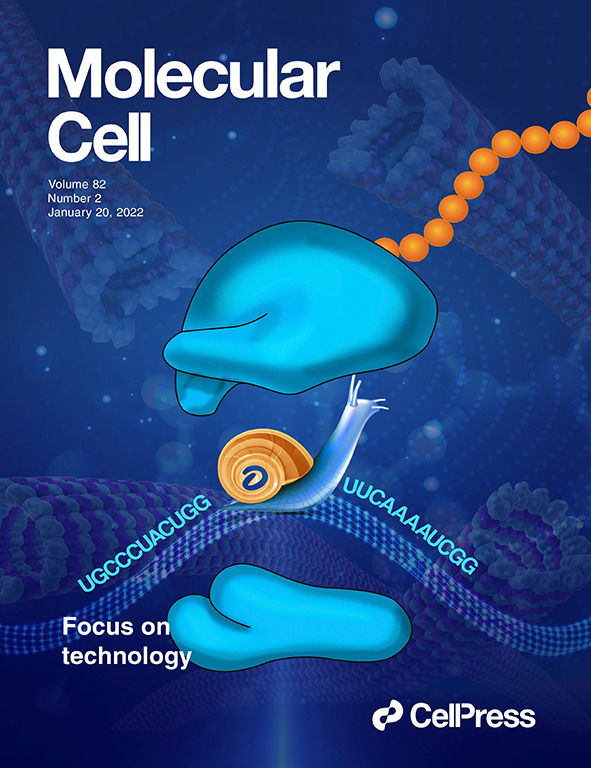Omics technologies as powerful approaches to unravel colorectal cancer complexity and improve its management
IF 3.7
3区 生物学
Q2 BIOCHEMISTRY & MOLECULAR BIOLOGY
引用次数: 0
Abstract
Colorectal cancer (CRC) continues to rank among the deadliest and most prevalent cancers worldwide, necessitating an innovative and comprehensive approach that addresses this serious health challenge at various stages, from screening and diagnosis to treatment and prognosis. As CRC research progresses, the adoption of an omics-centered approach holds transformative potential to revolutionize the management of this disease. Advances in omics technologies encompassing genomics, transcriptomics, proteomics, metabolomics, and epigenomics allow to unravel the oncogenic alterations at these levels, elucidating the intricacies and the heterogeneous nature of CRC. By providing a comprehensive molecular landscape of CRC, omics technologies enable the discovery of potential biomarkers for early non-invasive detection of CRC, definition of CRC subtypes, prediction of its staging, prognosis, and overall survival of CRC patients. They also allow the identification of potential therapeutic targets, prediction of drug response, tracking treatment efficacy, detection of residual disease and cancer relapse, and deciphering the mechanisms of drug resistance. Moreover, they allow the distinction of non-metastatic CRC patients from metastatic ones as well as the stratification of metastatic risk. Importantly, omics technologies open up new opportunities to establish molecular-based criteria to guide the selection of effective treatment paving the way for the personalization of therapy for CRC patients. This review consolidates current knowledge on the omics-based preclinical discoveries in CRC research emphasizing the significant potential of these technologies to improve CRC screening, diagnosis, and prognosis and promote the implementation of personalized medicine to ultimately reduce CRC prevalence and mortality.
组学技术是揭示结直肠癌复杂性和改善其管理的有力途径。
结直肠癌(CRC)仍然是全球最致命、发病率最高的癌症之一,因此有必要采用创新的综合方法,在筛查、诊断、治疗和预后等各个阶段应对这一严峻的健康挑战。随着 CRC 研究的不断深入,采用以 omics 为中心的方法有望彻底改变这种疾病的治疗方法。包括基因组学、转录物组学、蛋白质组学、代谢组学和表观基因组学在内的全局组学技术的进步可以在这些层面上揭示致癌物质的改变,从而阐明 CRC 的复杂性和异质性。通过提供全面的 CRC 分子图谱,omics 技术能够发现潜在的生物标记物,用于早期无创检测 CRC、定义 CRC 亚型、预测其分期、预后和 CRC 患者的总生存率。它们还能确定潜在的治疗靶点、预测药物反应、跟踪治疗效果、检测残留疾病和癌症复发,以及破译耐药机制。此外,它们还能将非转移性癌症患者与转移性癌症患者区分开来,并对转移风险进行分层。重要的是,omics 技术为建立基于分子的标准以指导选择有效的治疗方法提供了新的机遇,为 CRC 患者的个性化治疗铺平了道路。这篇综述整合了目前在 CRC 研究中基于 omics 的临床前发现的知识,强调了这些技术在改善 CRC 筛查、诊断和预后方面的巨大潜力,并促进了个性化医疗的实施,最终降低了 CRC 发病率和死亡率。
本文章由计算机程序翻译,如有差异,请以英文原文为准。
求助全文
约1分钟内获得全文
求助全文
来源期刊

Molecules and Cells
生物-生化与分子生物学
CiteScore
6.60
自引率
10.50%
发文量
83
审稿时长
2.3 months
期刊介绍:
Molecules and Cells is an international on-line open-access journal devoted to the advancement and dissemination of fundamental knowledge in molecular and cellular biology. It was launched in 1990 and ISO abbreviation is "Mol. Cells". Reports on a broad range of topics of general interest to molecular and cell biologists are published. It is published on the last day of each month by the Korean Society for Molecular and Cellular Biology.
 求助内容:
求助内容: 应助结果提醒方式:
应助结果提醒方式:


